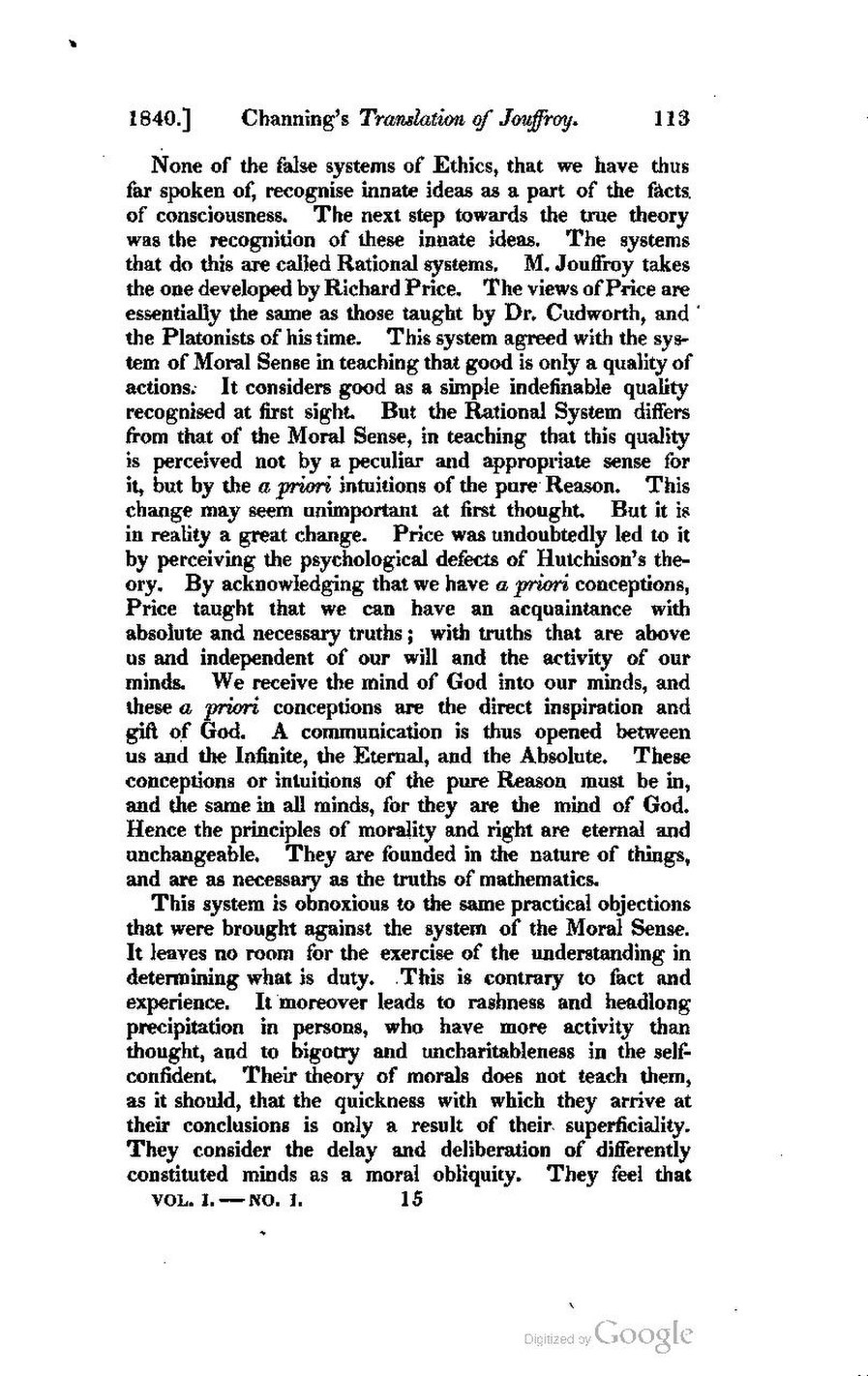None of the false systems of Ethics, that we have thus far spoken of, recognise innate ideas as a part of the facts of consciousness. The next step towards the true theory was the recognition of these innate ideas. The systems that do this are called Rational systems. M. Jouffroy takes the one developed by Richard Price. The views of Price are essentially the same as those taught by Dr. Cudworth, and the Platonists of his time. This system agreed with the system of Moral Sense in teaching that good is only a quality of actions. It considers good as a simple indefinable quality recognised at first sight. But the Rational System differs from that of the Moral Sense, in teaching that this quality is perceived not by a peculiar and appropriate sense for it, but by the a priori intuitions of the pure Reason. This change may seem unimportant at first thought. But it is in reality a great change. Price was undoubtedly led to it by perceiving the psychological defects of Hutchison's theory. By acknowledging that we have a priori conceptions, Price taught that we can have an acquaintance with absolute and necessary truths; with truths that are above us and independent of our will and the activity of our minds. We receive the mind of God into our minds, and these a priori conceptions are the direct inspiration and gift of God. A communication is thus opened between us and the Infinite, the Eternal, and the Absolute. These conceptions or intuitions of the pure Reason must be in, and the same in all minds, for they are the mind of God. Hence the principles of morality and right are eternal and unchangeable. They are founded in the nature of things, and are as necessary as the truths of mathematics.
This system is obnoxious to the same practical objections that were brought against the system of the Moral Sense. It leaves no room for the exercise of the understanding in determining what is duty. This is contrary to fact and experience. It moreover leads to rashness and headlong precipitation in persons, who have more activity than thought, and to bigotry and uncharitableness in the self-confident. Their theory of morals does not teach them, as it should, that the quickness with which they arrive at their conclusions is only a result of their superficiality. They consider the delay and deliberation of differently constituted minds as a moral obliquity. They feel that
